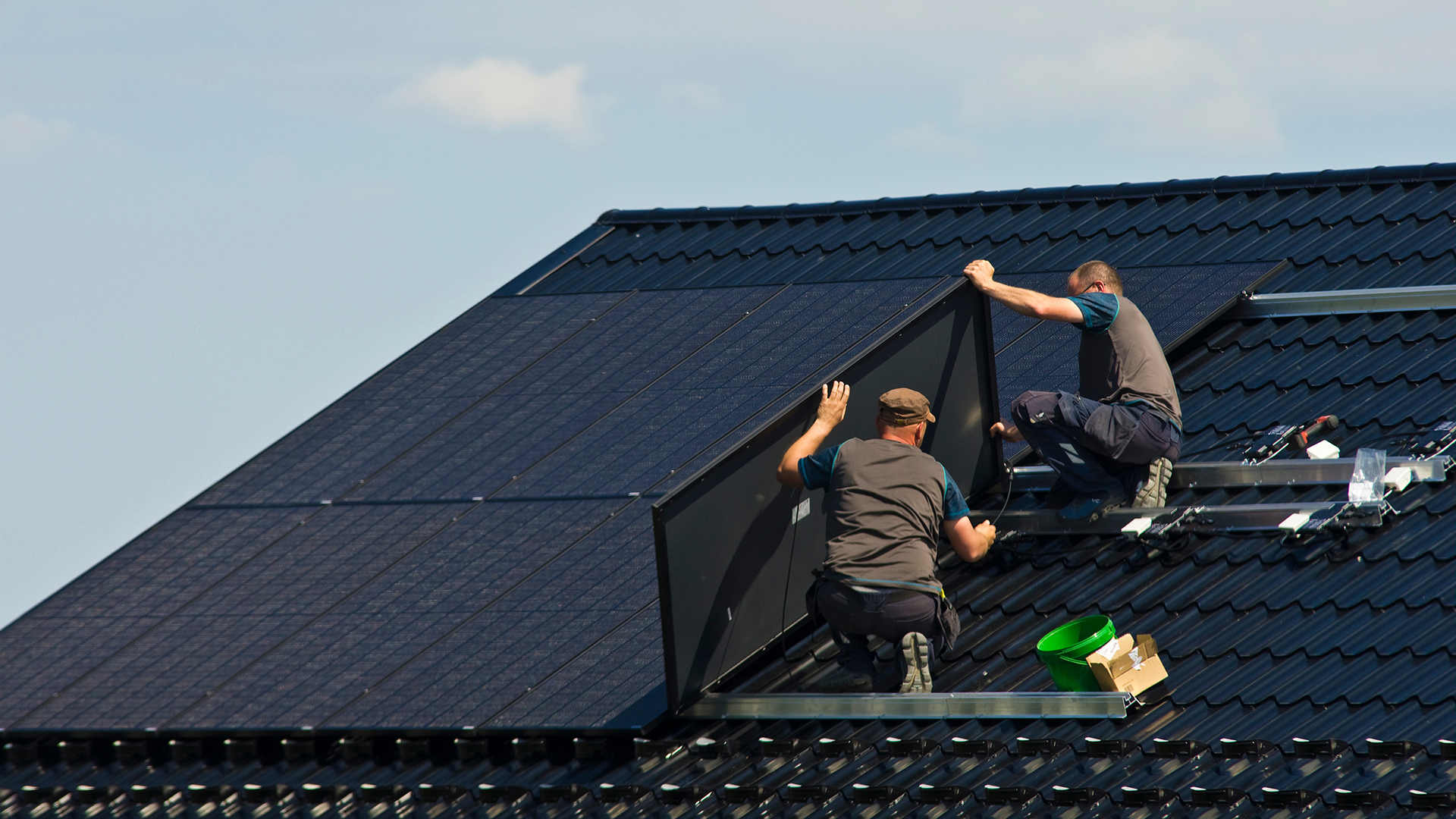Can Solar Panels Save You Money?
While solar panels may seem like a major investment, installing home solar panels can actually help you save money while reducing greenhouse gas emissions.
Share:

Using solar energy to power your home is widely viewed as a positive step toward a more sustainable lifestyle. Additionally, installing solar panels can also help you save money in the long term.
Should you consider solar panels for your home?
According to the U.S Department of the Interior, the amount of sunlight that strikes the earth’s surface in an hour and a half is enough to handle the entire world’s energy consumption for a full year. Solar panels allow you to harness the sun’s energy and convert it into electricity to power your home or other buildings in your community.
While coal, natural gas, and other fossil fuels traditionally used to create electricity are finite resources, solar panels are different. You can use them continuously and not worry about depleting the resource of its energy.
Today, about 60% of the energy generated by U.S. power plants comes from fossil fuels like coal and natural gas. Not only can fossil fuels eventually run out as limited resource but burning them is also a major contributor to climate change. That’s why more people are turning to renewable forms of energy—and the International Energy Agency projects that solar power will overtake the capacity of coal power by 2027.
Also, solar energy can be effective even if you don’t live in the sunniest climate. On cloudy days, solar cells can produce 80% of their energy potential. When it’s stormy or dark, a solar energy system can use stored energy to provide power.
How can solar panels save you money?
Once they’re installed, solar panels can help cut costs on energy bills, given they allow you to access free energy from the sun. Research shows that homeowners can save an average of $52,000 over the lifetime of a home solar system. The exact amount you save depends on the cost of electricity in your local area.
For instance, if you regularly pay 15 cents per kilowatt hour for electricity — and your solar panels generate 1,000 kilowatt hours per month – you should save $150 on your monthly power bill.
How much do solar panels cost?
The cost of installing solar panels to power your home will depend on the size of your home and your local market. For a 2,000-square-foot home, solar panels will typically cost between $14,000 and $26,000.
If you spend $15,000 to install solar panels and you save about $1,530 per year on electricity costs, you will earn back your investment in about nine and a half years.
However, you may earn back your investment quicker if your local power company offers a net metering program. With net metering, you can send excess solar energy to the local grid in exchange for power bill credits. On average, homeowners can save $50 or more per month with net metering.
Some employers offer incentives for employees who install solar panels at their homes. Forbright Bank, for example, provides a $2,000 reimbursement for its employees who install home solar projects. For a homeowner who spends $15,000 on a solar energy system and a $1,000 reimbursement from their employer, their total investment is $14,000. If they save $1,530 per year on electricity costs, they will earn back their investment in about nine years. If they save $50 a month on net metering, they could earn back their investment in just over six and a half years.
Solar panels can be a valuable way to support sustainability and lower energy bills over time, helping you save more money to meet your other financial goals. Whether you’re saving money on your bills from existing solar panels or saving up for a future solar panel installation, consider a high-yield savings account like Forbright Bank Growth Savings to capture your savings and work with a bank that’s committed to supporting sustainability-oriented projects.
Disclaimer: This article is for information and education only. It should not be considered financial or tax advice.





